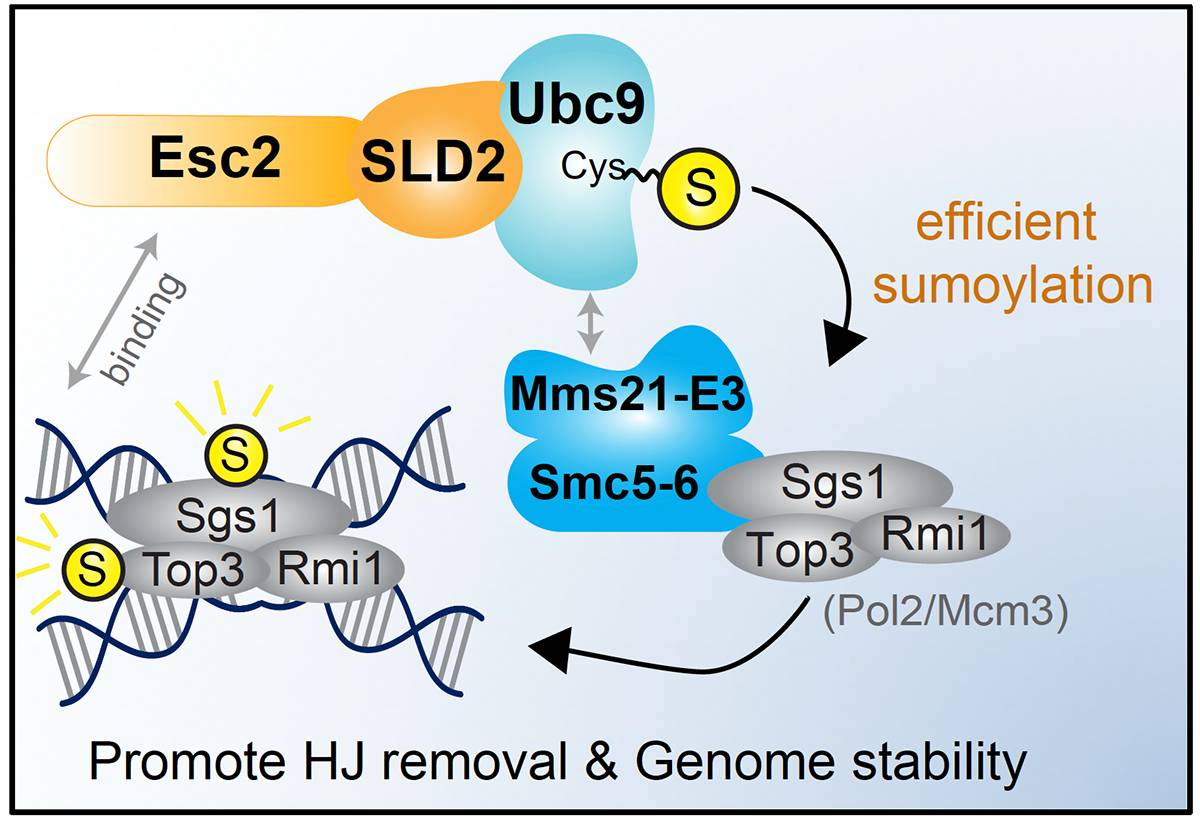Jayme Blaschke | February 11, 2021

New research conducted in part at Texas State University has shed new light on the regulation of protein sumoylation complexes involved in DNA damage repair and genome maintenance.
The research team included Texas State's Xiaoyu Xue, assistant professor in the Department of Chemistry and Biochemistry; Ashley Summers, a graduate student in the Materials Science, Engineering and Commercialization (MSEC) program; Stephen So, an undergraduate student in the Department of Chemistry and Biochemistry; and Leticia Gonzalez, grant technician in the Department of Chemistry and Biochemistry, working with researchers from the Memorial Sloan Kettering Cancer Center, New York, and the Weill Cornell Graduate School of Medical Sciences, New York.
Their research, "Esc2 orchestrates substrate-specific sumoylation by acting as a SUMO E2 cofactor in genome maintenance," is published in the journal Genes & Development.
The research used a budding yeast model system to examine sumoylation, a cellular process that can regulate many protein functions, including repair of damage to the genome, explained Xue.
"We were particularly interested in protein sumyolation which is happening for DNA damage repair and recombination," Xue said. "We were analyzing a budding yeast protein called Esc2 and how it regulates the sumoylation of a DNA damage repair protein complex called Sgs1-Top3-Rmi1 (STR). We discovered that Esc2 can affect the sumoylation of this complex. When the Esc2 protein was depleted, the sumoylation of STR was impaired."
Using budding yeast as a model system, the research team found that the Esc2 protein can regulate the activity of enzymes at distinct DNA structures to promote the sumoylation of specific substrates and genome maintenance.
"We discovered a mechanism of how the sumoylation was regulated in budding yeast, and similarly, this may be the same in humans and other animals," Xue said. "This may be a conserved mechanism, functioning similarly in amimals as in budding yeast. We don't know for sure, but this shows that it may be a possibility because Esc2 has some conserved homologues in humans and other animals.
"Sumoylation defects may cause genome instability, which is a major cause of human cancer," he said. "Studying the yeast and identifying the proteins that are involved in regulating the sumoylation helps us identify candidate proteins in animals that may serve the same role. Mutations on these proteins may affect the sumoylation of DNA repair proteins."
Share this article
For more information, contact University Communications:Jayme Blaschke, 512-245-2555 Sandy Pantlik, 512-245-2922 |
